Iranian Police Still Send SMS Warnings To Women Over Hijab
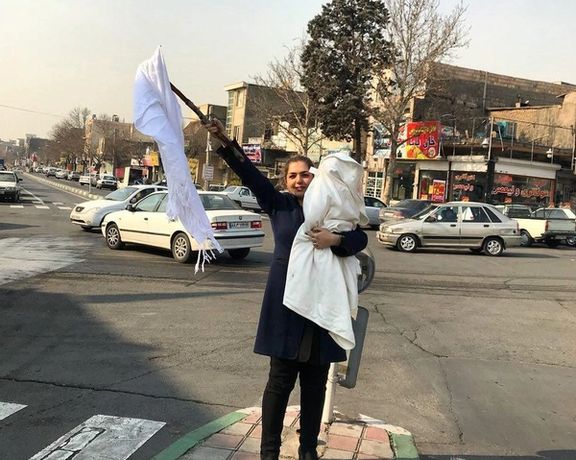
Iran’s police say warning text messages are still being sent to women drivers regarding improper hijab because "removing hijab" is a criminal offense.

Iran’s police say warning text messages are still being sent to women drivers regarding improper hijab because "removing hijab" is a criminal offense.
Mehdi Hajian, the Spokesman of Iran’s Police said Saturday that the text messages are sent to vehicle owners who have not been wearing proper hijab in their vehicles.
In an interview with Fars news agency, affiliated with the IRGC, Hajian emphasized that according to the Islamic Penal Code, the police have a "duty" to send text messages to vehicles whose passengers do not wear the mandatory hijab.
In the past weeks, social media users reported that after a pause during the uprising of the Iranian people against the clerical rulers, the police resumed warning women with text messages. The practice is a few years old and previously women who were warned had to go to a police station and sign a pledge.
After the death in custody of Mahsa Amini in mid-September, many women showed opposition to the mandatory hijab and refused to wear headscarves in public places.
On January 10, the Prosecutor's Office of the Islamic Republic issued a directive ordering the police to deal decisively with "hijab removal".
According to the directive, the main punishment for removing hijab is between ten days to two months of imprisonment, but the courts can sentence those arrested to paying a fine and supplementary punishments.
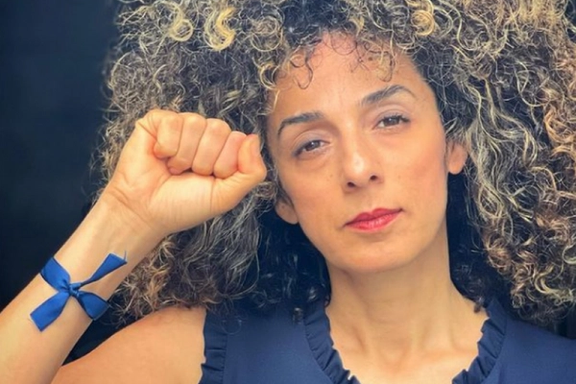
Iranian activist and author Masih Alinejad says the plot by the Iranian regime to kill her makes her more powerful to fight for democracy.
"I'm not scared," Alinejad told the AP after US authorities announced charges against three people who attempted to kill her on behalf of Iranian intelligence.
"I want to tell you that the Iranian regime thinks by trying to kill me, they will silence me, or silence other women. But they only strengthen me, make me more powerful to fight for democracy and give voice to brave women who are facing guns and bullets in the streets to get rid of the Islamic Republic."
Alinejad said the assassination attempt shows that the Islamic Republic is terrified of Iranian women demanding their rights, which she often promotes through social media. “They are scared of their own people,” she said. “Like millions of others I want freedom for my country. I don’t deserve to die for that.”
The US Justice Department on Friday charged three men with conspiring to assassinate the dissident Iranian activist and journalist.
Rafat Amirov, Polad Omarov and Khalid Mehdiyev were charged with murder-for-hire and money laundering for their role in the thwarted Tehran-backed plot, the Department of Justice said in a statement.
Iran has assassinated or kidnapped hundreds of opponents abroad in its four-decade history. Germany, France, Turkey and Iraq were among countries where Iranian intelligence conducted many deadly operations against opponents.
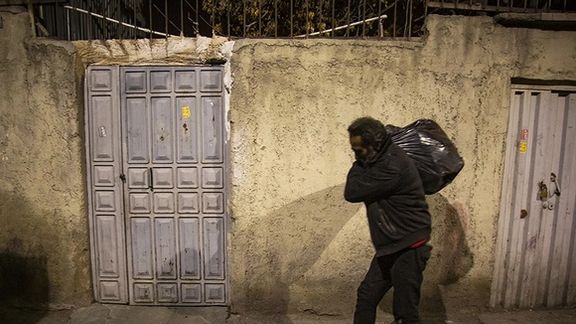
Gholam Ali Jafarzadeh Imanabadi, an ex-lawmaker says radicalism has destroyed the ideals of Iran's 1979 revolution, hurting the economy and causing poverty.
Imanabadi added in an interview with Rouydad24 website that poverty and unemployment will rise in the next Iranian year which starts on March 21. According to the former lawmaker the gap between socio-economic classes in Iran is also going to widen next year. All this, he said, indicates that "the future is going to be bleak" for Iranians.
Referring to Iranian President Ebrahim Raisi's promising remarks about low inflation and high economic growth, Imanabadi further charged that "Iran's economy has not grown and the statistics in this regard are wrong. Either President Ebrahim Raisi is being fed with wrong information or he is not interested in telling the truth."
He complained that "Those who worked hard for this country for 40 years are now out of a job and are replaced by a bunch of liars who run the country."
Speaking along the same lines, Hassan Khomeini, a grandson of Ayatollah Rouhollah Khomeini, the founder of the Islamic Republic, who was "advised" by Supreme Leader Ali Khamenei not to run in 2021 presidential vote, also said in an interview with reformist news website Jamaran that the 1979 revolution brought about a sizeable middle class in Iran which has disappeared as a result of the current economic crisis in Iran.
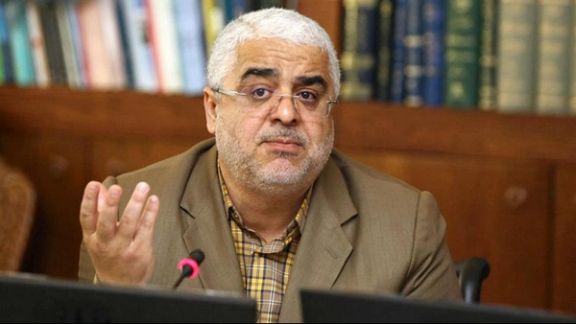
Speaking about the increasing hardship today, Khomeini warned that poverty which is the outcome of oppression will eventually lead to a revolution.
Speaking about the ongoing protests in Iran, he said the government should not try to win or keep the power at any rate. He added: "The solution to the country's current situation is holding a dialogue with the people." Meanwhile he called for putting an end to violence in the confrontation with the protesters.
He added that when the people become angry those who are underprivileged will revolt and when it spreads, "there will be a revolution to change the society's leader, structure and ideology."
This is the clearest warning given to the Iranian government by a well-known cleric about a looming revolution in Iran.
Khomeini, addressed the reformist National Trust Party, told the party's leaders not to be shy about voicing their demands. "Stand on your feet and be bold," he said.

Regardless of Imanabadi’s and Khomeini's warnings about the dangers of increasing poverty, Labor Minister Solat Mortazavi claimed in an interview with Aftab News websitethat there is no “absolute poverty” in Iran. This comes while according to Aftab News, Mortazavi himself was a victim of absolute poverty when he used to live in Baba Heydar village in Chaharmahal and Bakhtiary Province before joining the government and becoming a rich man.
Mortazavi started his career as Basij commander in his village. Aftab News further charged that of course there is no absolute poverty in Mr. Mortazavi's family because he has given good jobs to his sons!
Aftab News further quoted Hamid Haj Esmaili, a researcher in the area of labor and poverty, as saying that "Eliminating absolute poverty is one of the responsibilities of the government. However, poverty has been constantly on the rise after the 1979 revolution. He added that some 30 million Iranians are depending on charity organizations for their daily meal which is a high figure for a country with 85 million people.
Esmaili added that some 67 million Iranians depend on the subsidy for fuel and in all, some 74 million receive some sort of cash handouts. He estimated that some 70 million Iranians suffer from absolute or relative poverty.

A young Iranian skier, who had traveled to Europe to get prepared for World Championship, has applied for political asylum in Germany.
Atefeh Ahmadi, Iran's number one skier and the flag bearer of the national teams in the 2022 Beijing Winter Olympics, has told Iran International that she does not intend to participate in these competitions and has applied for asylum in Germany.
The 22-year-old was the only Iranian woman to qualify for the Beijing Games. She is also the winner of five Asian medals and several gold medals in the Turkish Alpine Skiing International Championships.
She is a silver medalist in the Super-G event of the 2018 Asian Alpine Ski Championships.
Her father was a member of the Iranian national cross-country skiing team. He also became the first coach for Atefeh and her sister Hadis.
Around 30 Iranian athletes have defected in recent years, seeking asylum in other countries.
In addition to dress code restrictions, another issue forcing Iranian athletes to defect is Tehran’s policy of not allowing them to compete against Israelis.
Many Iranian athletes have also displayed solidarity with 2022 protest movement at international games despite threats of punishment.
Authorities have made serious threats against athletes and other celebrities to stop them from public displays of solidarity with protesters but to no avail.
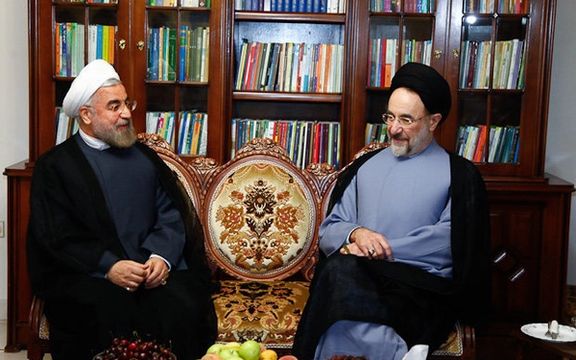
Some ‘reformist’ politicians have warned that excluding critics in next year’s parliamentary elections can only worsen the legitimacy crisis Iran’s regime faces.
Since September, the country has been in turmoil. Protests have somehow slowed down in recent weeks, but there is no sign that the crisis is anywhere near resolution. In fact, many believe that the relative quiet these days is only the calm before a storm.
After protests during which people regularly chanted against clerical rule and its top authority, Supreme Leader Ali Khamenei, and the killing of over 500 protesters within the last four months, elections next year does not appear to be of interest to most Iranians now.
Young protesters who often chant “Reformist-Principlist, this is the end of the story” see little difference between regime hardliners and reformists who want to make changes in the Constitution and laws to make them more democratic within the framework of the Islamic Republic.
In November, some prominent reformists figures met with top officials including Chief Justice Gholam-Hossein Mohseni Ejei, Secretary of the Supreme National Security Council Ali Shamkhani, and Interior Minister Ahmad Vahidi to start a dialogue over the current circumstances and the unrest in the country.
Media reported that they demanded the authorities to stop violence against protesters and open the atmosphere and allow people’s voices to be heard. They were reportedly promised that a few of them could meet with and directly convey their concerns to Khamenei but it appears that their plea has completely been ignored.
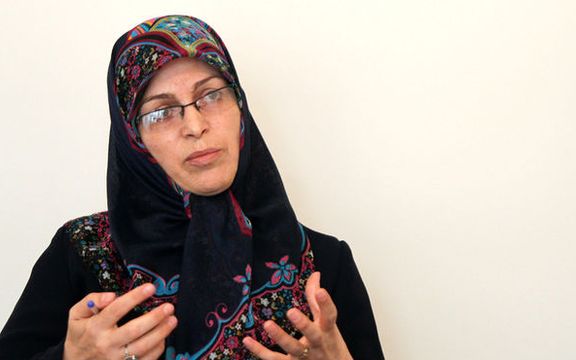
Some reformists have argued that the only way the country can be saved from its dire economic, social and political crisis is through the ballot box, but also said the hardliner Guardian Council which staunchly refuses to allow anyone outside their political circle to run in any elections has completely blocked that path.
However, it is not clear if ‘reformists’ only want their names to appear on ballot papers, or are also in favor of allowing opponents of the regime to be allowed to run.
Even before the current spate of protests, a considerable majority of Iranians were already deeply frustrated with the tightly controlled elections and voting for the very few moderate-reformist candidates who are allowed to run. Even when elected, these officials had no real power in a system dominated by hardliners and conservatives collectively known as Principlists.
The deeply disgruntled electorate very clearly turned its back on ballot boxes in the latest election. Participation rate in the June 2021 presidential elections dropped to an all-time low of 48%. These included 13% void ballots cast by voters who felt they had to vote but did not favor any of the four candidates filtered by the Guardian Council, including a less prominent reformist.
In a note in Etemad newspaper on January 22, former reformist lawmaker Kamaleddin Pourmoazen warned that it is no longer possible to accede to “a hugely ambiguous and untransparent [election] law” that hardliners easily manipulate to limit the nation’s right to determine its destiny.
Referring to the low turnout in the previous parliamentary and presidential elections, he said it is no longer possible to run the country with officials elected with minimal participation of the electorate and ignore the rest.
The totalitarian Paydari Front, which has now spread its dominion to nearly all centers of power, will only make the country more vulnerable against threats, both domestically and internationally, and deepen the rift between the rulers and the ruled, he warned. In the current circumstances the ruling hardliners have no way out of the impasse they have created other than opening up the political atmosphere for real, he argued.
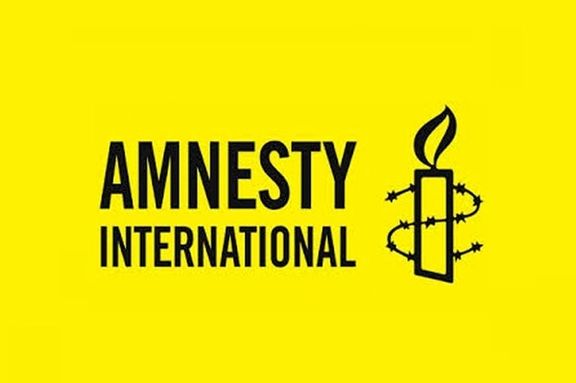
Amnesty International says the Islamic Republic must immediately reverse the convictions and death sentences of three young protesters who were subjected to torture.
The international human rights group said on Friday that the three protesters were tortured by “floggings, electric shocks, being hung upside down and death threats at gunpoint.”
Amnesty has also learned that Revolutionary Guard agents raped one of them and sexually tortured another by placing ice on his testicles for two days.
Arshia Takdastan, 18, Mehdi Mohammadifard, 19, and Javad Rouhi, 31, each received two death sentences in December 2022 for “war against God” and “corruption on earth”.
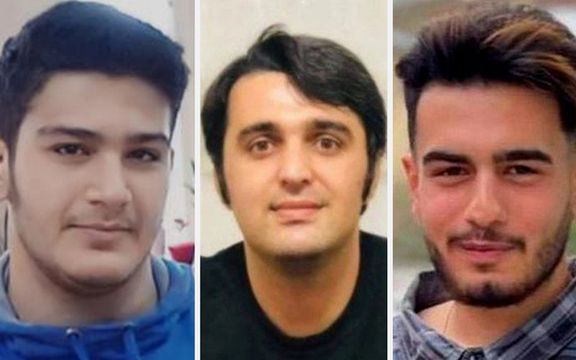
The court says the young men have “incited” arson by throwing headscarves into bonfires during protests in Noshahr, in northern Manzandaran province on September 21.
Javad Rouhi has received the third death sentence as he has confessed under duress that he burned a copy of the Quran during protests.
“The fact that Arshia Takdastan, Mehdi Mohammadifard and Javad Rouhi and their anguished relatives live under the shadow of execution while Revolutionary Guard agents and prosecution officials reasonably suspected of responsibility or complicity in their sexual abuse and other forms of torture enjoy absolute impunity highlights the sheer cruelty and inhumanity of Iran’s judicial system,” noted Diana Eltahawy, Amnesty International’s Deputy Director.
“The Iranian authorities must immediately quash the convictions and death sentences of these young men and drop all charges related to their peaceful participation in protests,” she added.